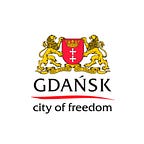Gdańsk is one of the few Polish cities that run an open data program. Probably it is the only city that publishes daily data on its expenses. There was a need for greater transparency and increasing trust among citizens and local government. The development of open data policy initially encountered a lot of challenges, but now is a fine-tuned mechanism. The city of Gdansk decided to share its experience with this pioneer initiative with other cities — Gdansk know-how on open data is now available as a free e-book.
Despite the fact that the publication is available only in Polish (so far), it is worth a short reminder how Gdansk became a more open, transparent city.
Since 2014, Gdansk has been developing its openness policy. There is a strong belief in the city leadership that publishing information in open, structured formats can contribute to greater efficiency and transparency. Openness fosters social engagement, and helps manage cities in a better way.
At the beginning there was a diagnosis: we need citizens to get more involved in the life of the city and we need to spread knowledge on how the local government works. Another necessity was to build in Gdansk the economy of the future, based on knowledge and processing of open, public data.
The Open Gdansk project was established, with one main goal of providing open city data to all interested parties with no charges or licensing restrictions. Data is provided in accordance with the widely accepted standards of open data.
The focal point of the program is not technology. It is rather building strong relations with external stakeholders, including NGOs, coders, activists, and start-ups. Last year brought many improvements and developments to the project. To mention a few of them:
- Participation, together with the city of Grudziadz in Open Agile & Smart Cities initiative. These are the only two Polish cities which decided to cooperate with international partners on smart city projects, based also on open technologies.
• Migrating open data resources to CKAN platform (www.otwartygdansk.pl), a European standard for such portals. The same solution is used, among others, by the Ministry of Digitization on the portal danepubliczne.gov.pl. The compatibility and common standard could help to integrate datasets in the future.
• Tightening relations with external stakeholders, among them — IT professionals interested in using technology for social change (Code for Poland — Trojmiasto). The city hall of Gdansk, together with Code for Poland and Volanto, initiated the development of Na4Łapy application (“On4Legs”). The app helps to facilitate the adoption of pets from a Gdansk shelter.
• Contextualization and visualization, for example gdansk.pl/budzet, which shows details of city expenses and incomes. The important part of it is visualization of expenses per capita, which is of great help for taxpayers.
• Sharing new datasets, including data on taxi licenses, license plates, water quality, rains, accommodation base etc.
Still, the most ground-breaking part of Open Gdansk remains the daily register of city expenses, which is being published since 2015. It is available at: http://www.gdansk.pl/smartcity/Publikacja-wydatkow,a,39710 , the only initiative of this kind in Poland and only one of a few in Europe.
Another important asset of Open Gdansk is full and transparent register of public information requests and answers to it: http://bip.gdansk.pl/urzad-miejski/informacja-publiczna?archiwum=rw
How is it done?
The Open Data Team is responsible for the projects. The team reports twice a year to the city mayor on progress. Among its members are representatives of IT Office, Mayor’s Office, Promotion & Communication Department and plenipotentiary for personal data protection. External stakeholders taking part are ePanstwo Foundation (creator of “Open Cities” project) and Gdansk Multimedia Center.
The team analyzes data-sets in the city hall and assesses feasibility of opening them. Legal, technological and financial issues are taken into account. The formal framework for the team was created by the Mayor, who signed an Order for it. Such a formal measure is very important, when working in vast, diversified environment of the city hall. Of no less importance are informal contacts of the team’s members with representatives of departments and other city’s agendas. The team can be considered as a single point of contact for any city official to discuss his or her doubts on opening data, issues related to data ownership, IT security etc.
Benefits of the Open Data program for Gdansk:
• More transparent decision-making process
• Building trust with external stake-holders, like media and NGOs
• Growing engagement of residents, active participation
• Better quality of life — full access to information can shorten time a resident has to spend when contacting the city hall
• Better image of Gdansk outside the city, as a smart city opened to modern technologies
• Stronger working relations with international organizations, like What Works Cities or Open & Agile Smart Cities
Written by: Krzysztof Garski, Mayor’s Office in Gdansk
